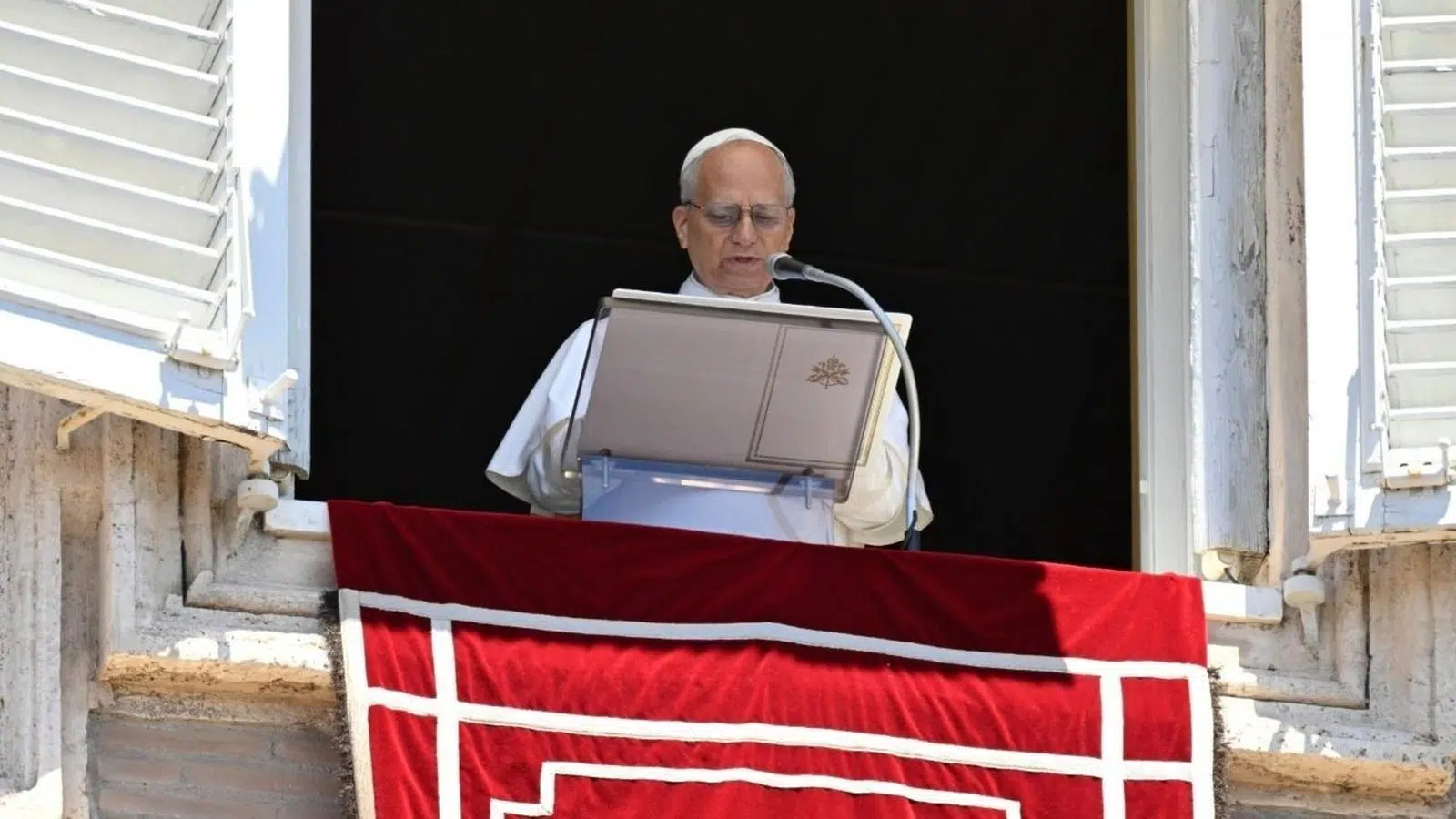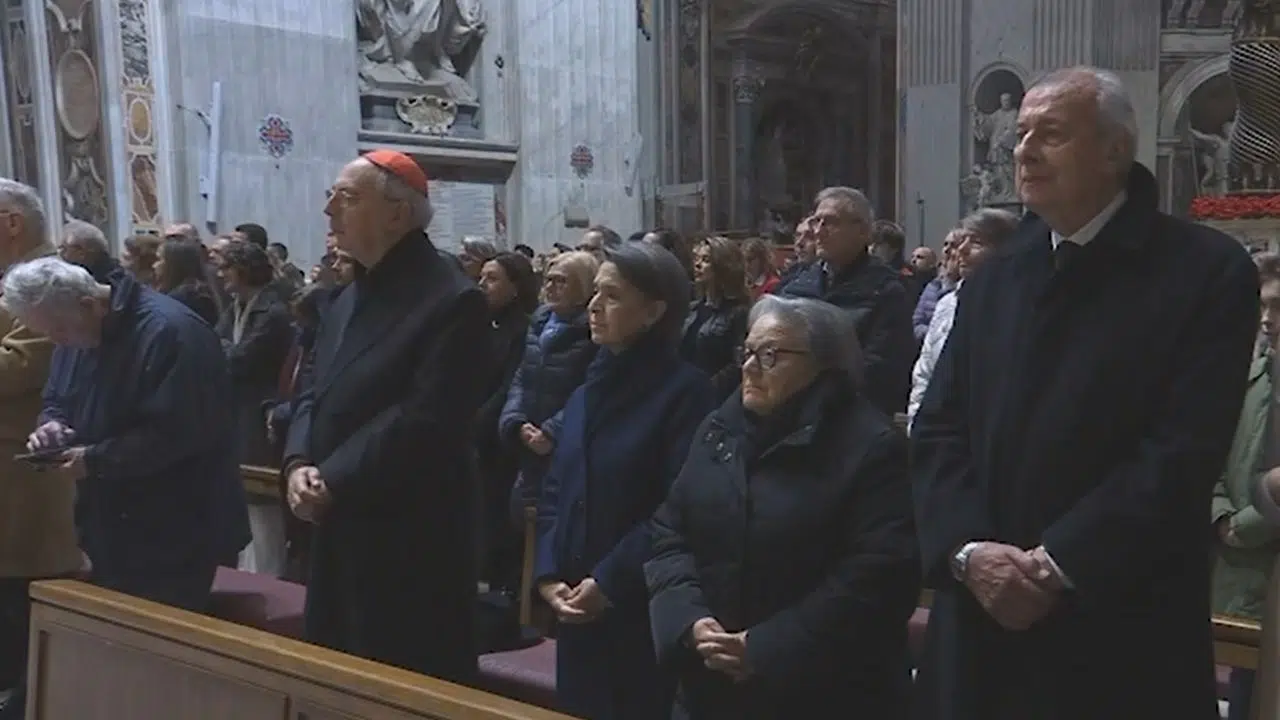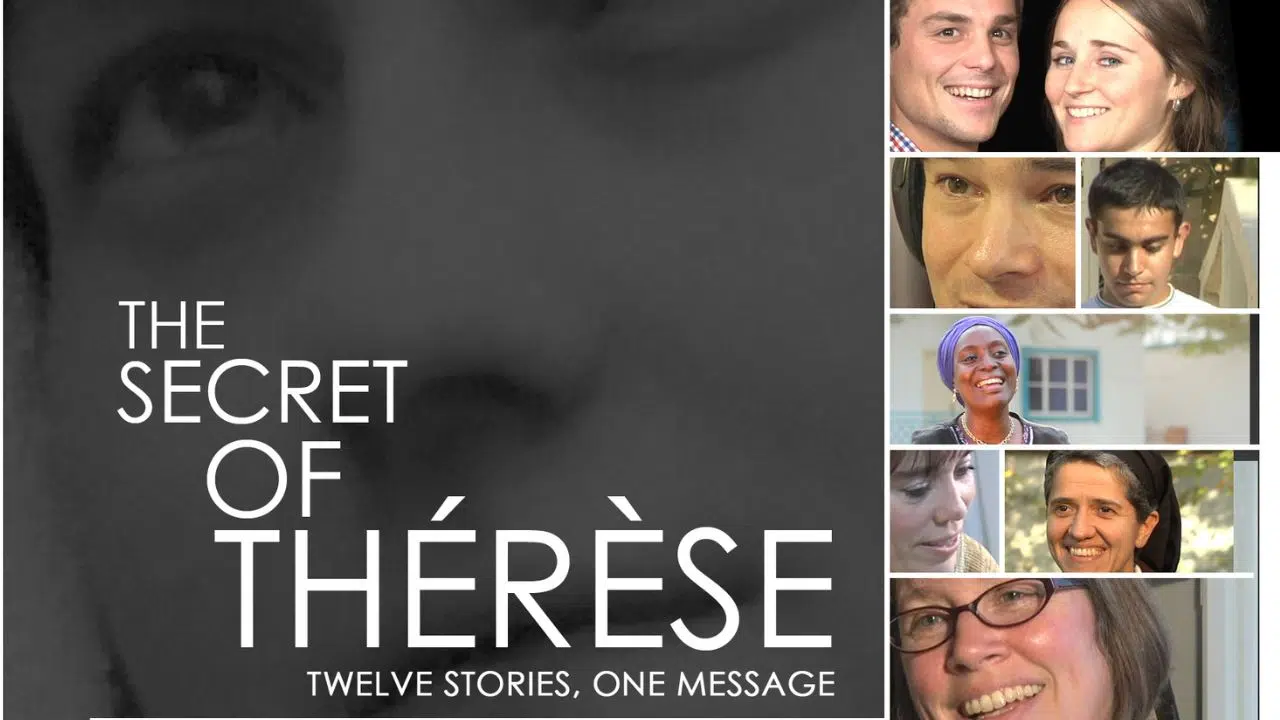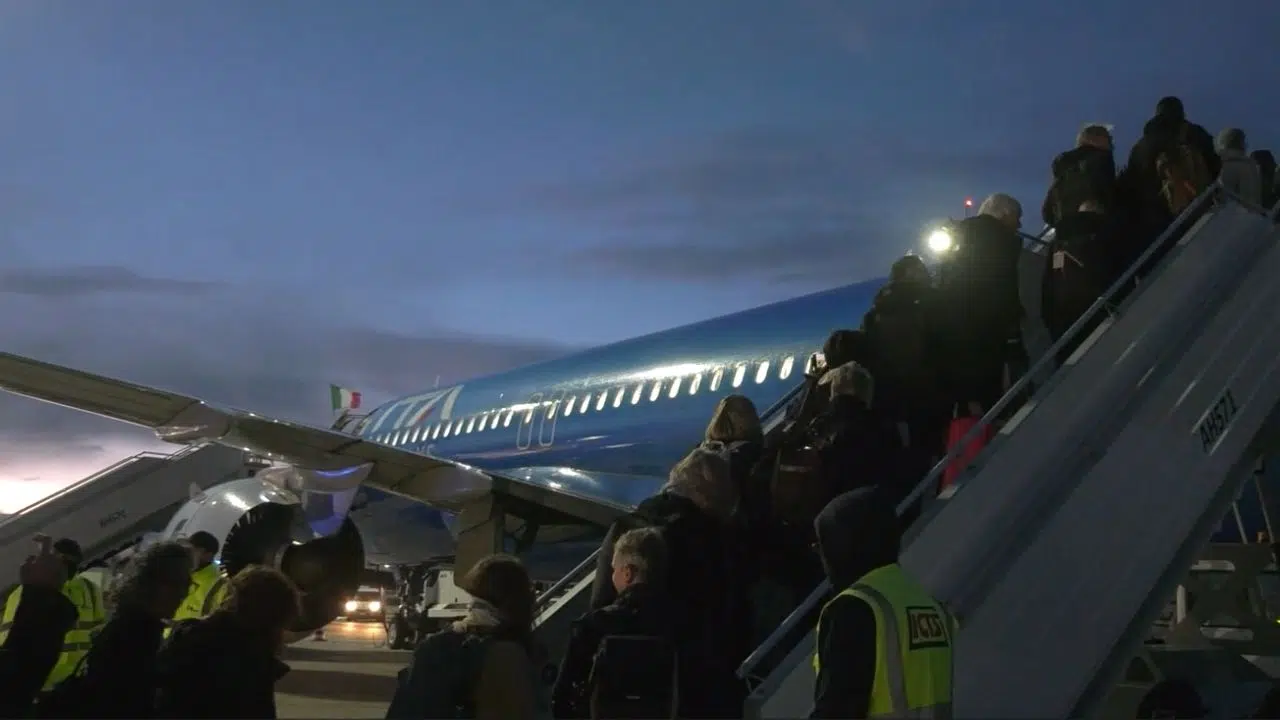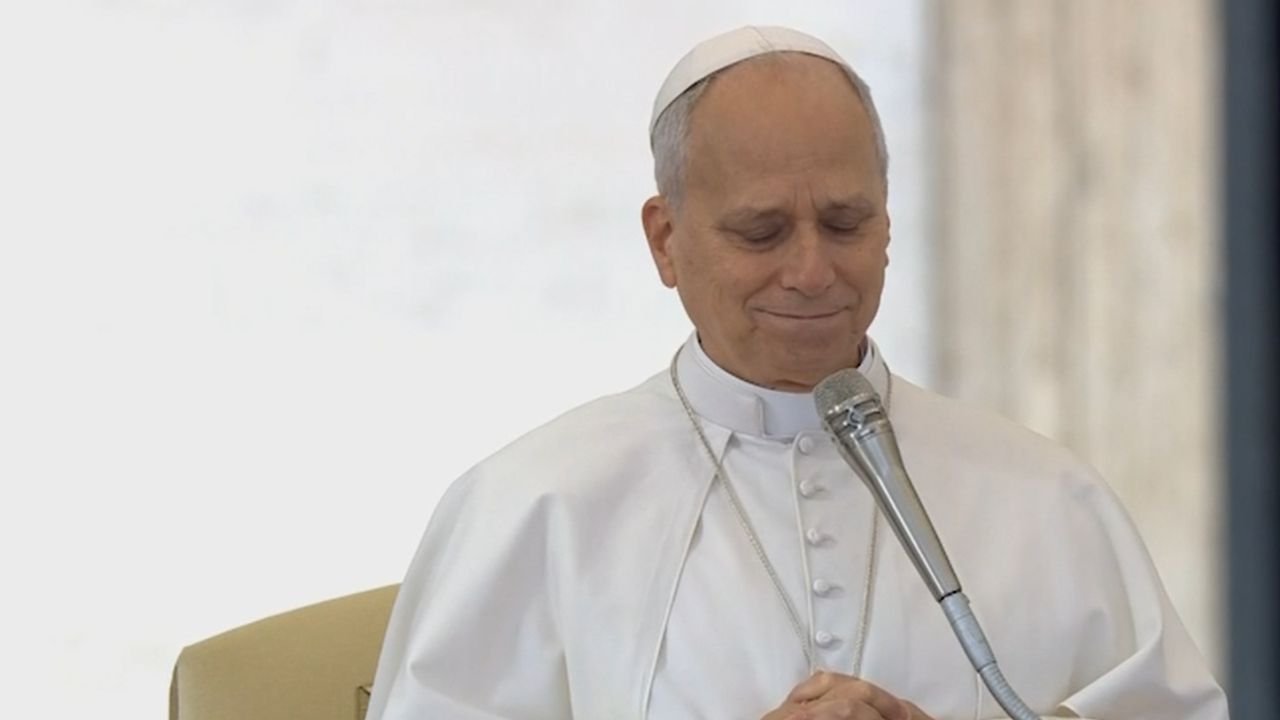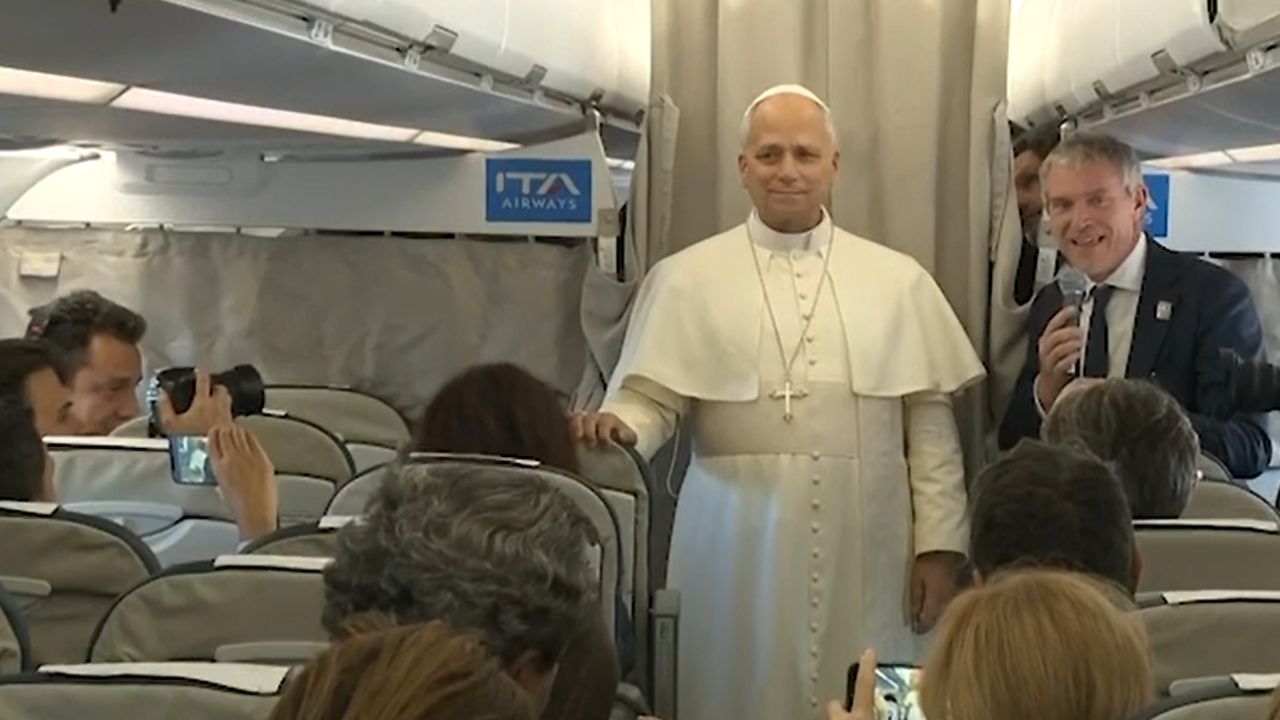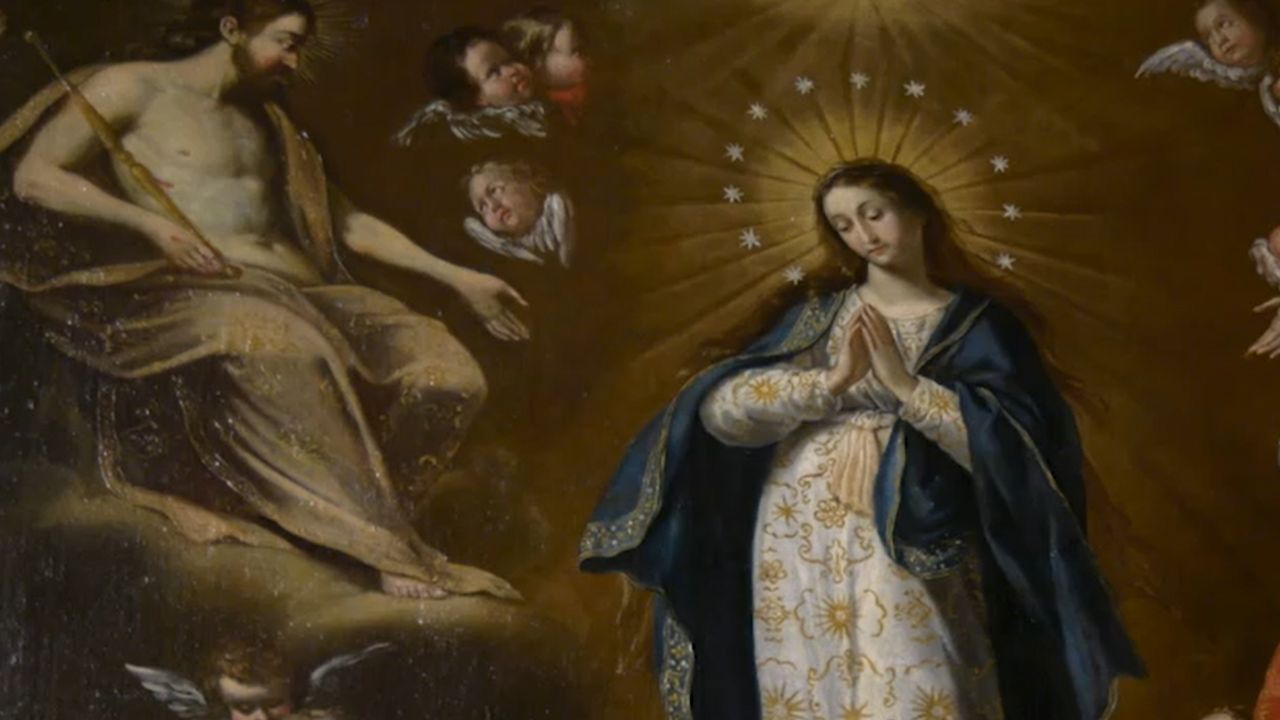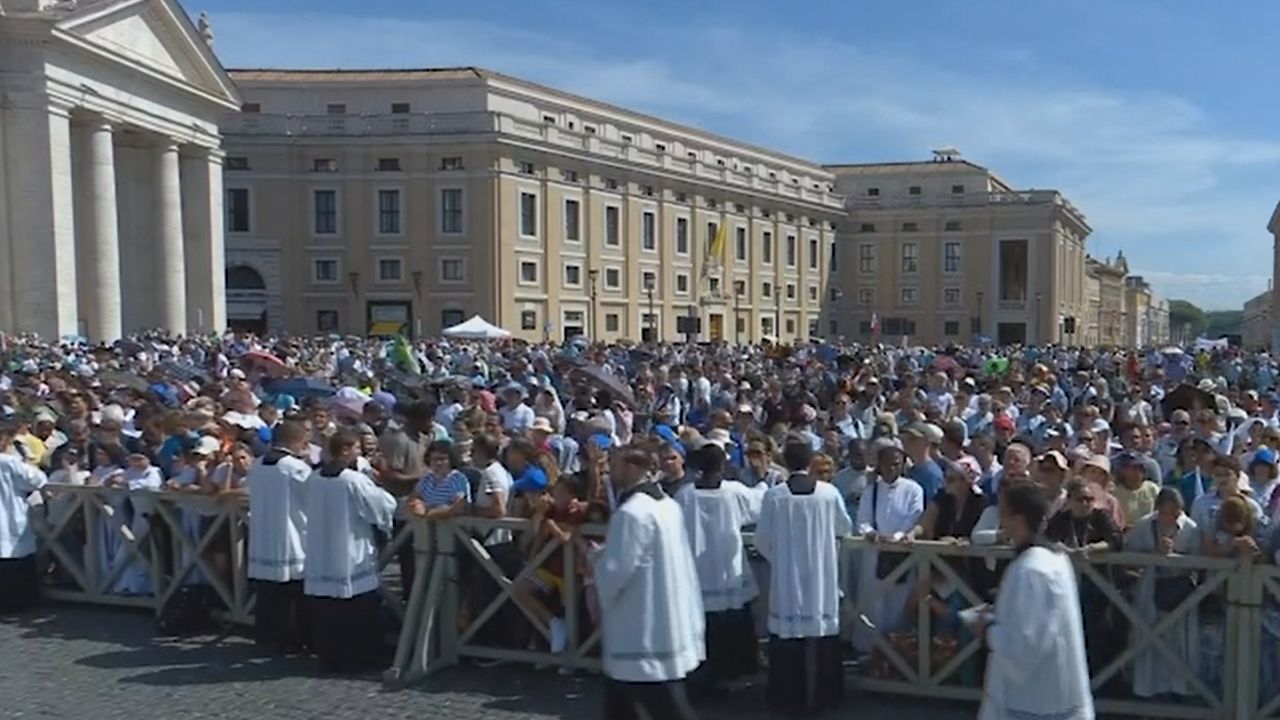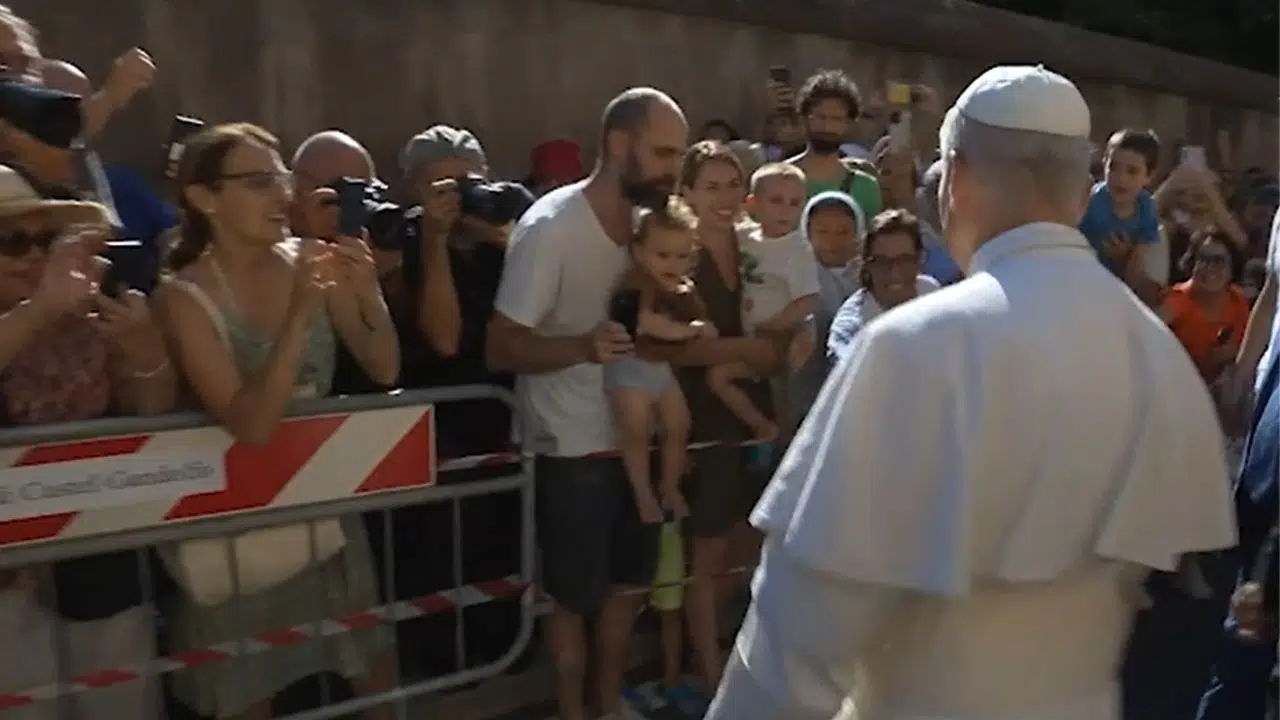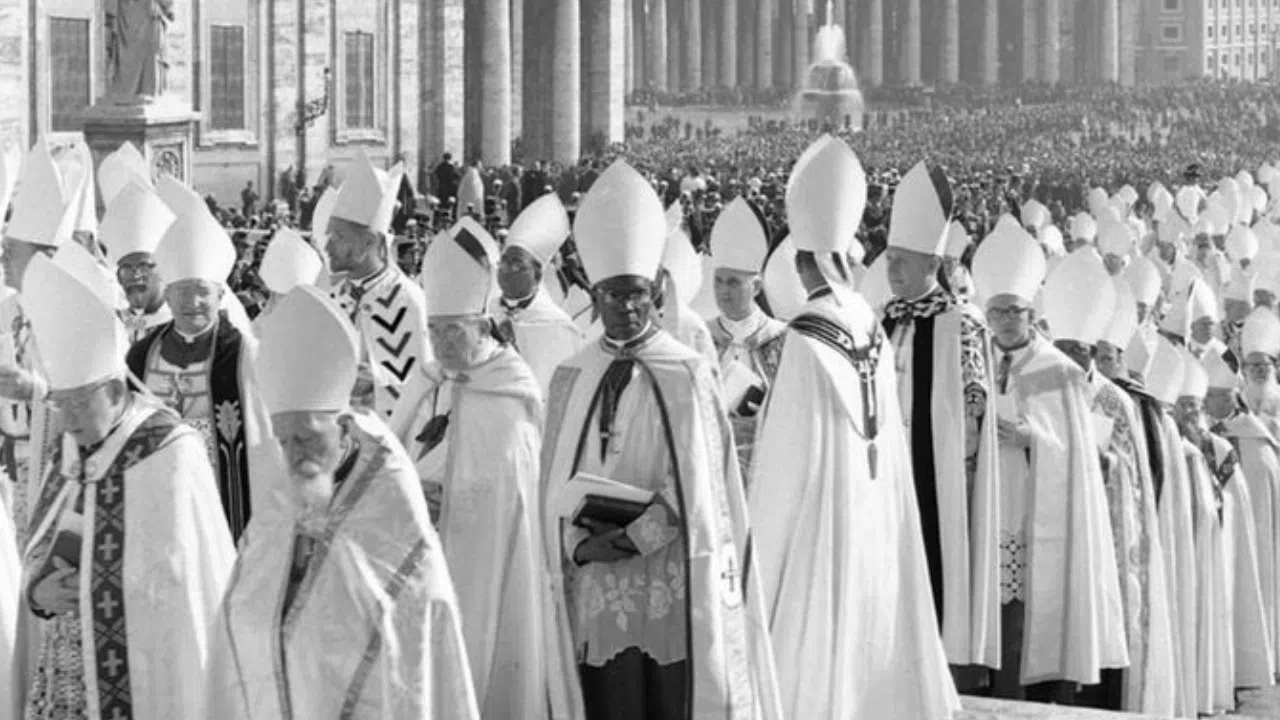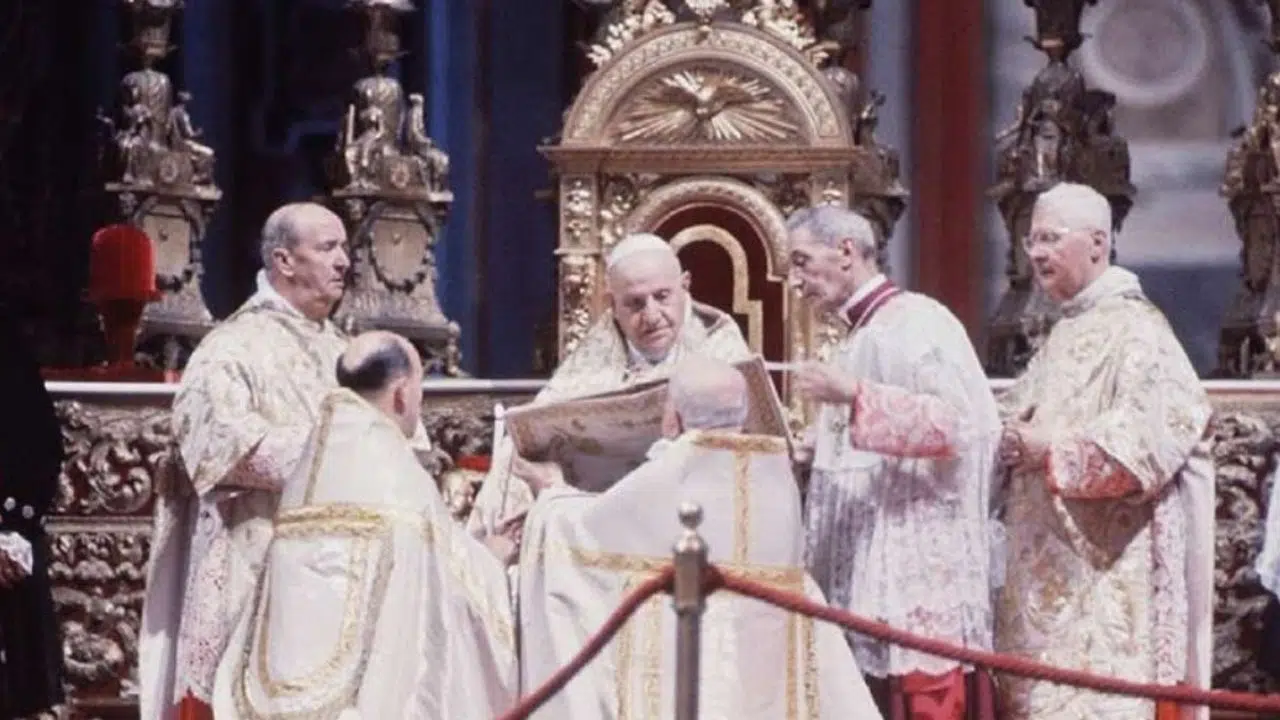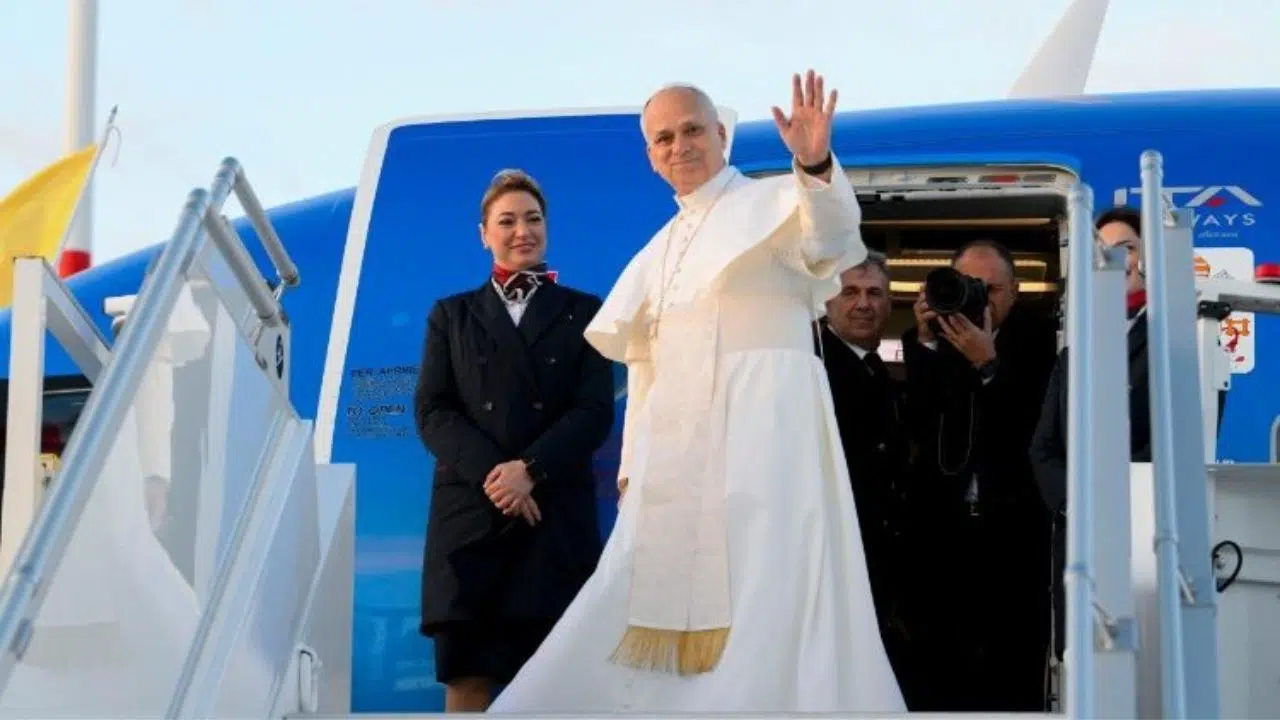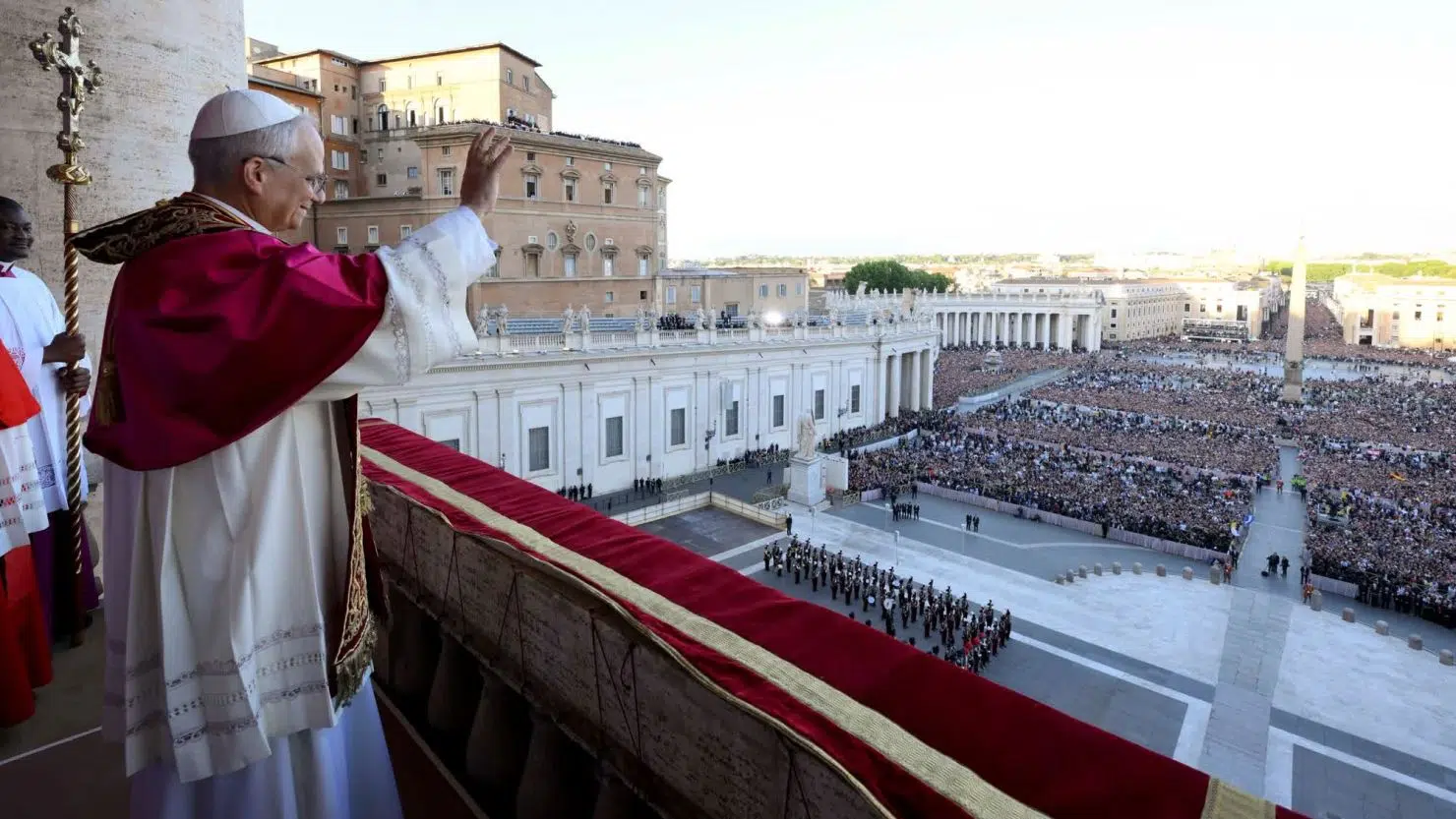(ONLY VIDEO) Pope's full homily in Corsica.
The people ask John the Baptist: “What should we do then?” (Lk 3:10). What should we do? This is a question that must be listened to attentively because it expresses the desire to renew life and improve it. John announces the coming of the long-awaited Messiah. Those who hear the Baptist's preaching want to prepare for this encounter—with the Messiah, with Jesus.
The Gospel according to Luke shows that it is precisely those who are furthest away who express this willingness to convert. Not those who, socially, appeared closer—not the Pharisees or the doctors of the law—but the tax collectors, considered sinners, who ask: “Teacher, what should we do?” (Lk 3:12). This is a good question, one we might consider asking ourselves today, before going to sleep: “Lord, what must I do to prepare my heart for Christmas?” Those who believe themselves to be righteous do not renew themselves. Instead, public sinners desired to change their dishonest and violent behavior for something new. Those far away draw near when Christ comes close to us. Indeed, John answered the tax collectors and soldiers, urging them to practice justice, honesty, and righteousness (cf. Lk 3:13-14). Including the poorest and most marginalized, the Lord’s message awakens consciences because He comes to save, not condemn, those who are lost (cf. Lk 15:4-32).
The best way to be saved and sought by Jesus is to acknowledge the truth about ourselves: “Lord, I am a sinner.” And truly, we all are. Saying “Lord, I am a sinner” brings us closer to Jesus with sincerity, not with the pretense of false righteousness. Because He comes precisely to save sinners.
So today, let us also take up the question the crowd asked John the Baptist. During this Advent season, let us have the courage to ask, without fear: “What must I do?” or “What must we do?” Let us ask this sincerely, to prepare within ourselves a humble heart, one that trusts in the Lord who is coming.
Two Ways to Await the Messiah: Distrustful and Joyful Expectation
The readings we have heard present two ways to await the Messiah: distrustful expectation and joyful expectation. Salvation can be awaited with these two spiritual attitudes. Let us reflect on them.
Distrustful Expectation: This approach is filled with suspicion and anxiety. A person whose mind is preoccupied with egocentric thoughts loses the joy of spirit. Instead of watching in hope, they doubt the future. Concerned only with worldly projects, they fail to await the work of Providence and cannot hope with the Spirit-given confidence. Saint Paul’s words awaken us from this lethargy: “Do not worry about anything” (Phil 4:6). Anxiety always damages us. Pain—whether physical or emotional—is one thing, but anxiety is another. Christians are not meant to live in anxiety. Do not be distressed, disappointed, or sad.
These spiritual ailments are widespread, especially where consumerism prevails. In recent days, walking the streets of Rome, I saw so many people shopping with the anxiety of consumerism. It soon fades, leaving nothing behind. A consumerist society grows old unsatisfied because it does not know how to give. Those who live for themselves will never be happy. Happiness comes when we open our hands, not when we keep them closed. Closed hands are selfish; open hands give, help, and share. And this selfishness can affect all of us—Christians, priests, bishops, cardinals, even the Pope.
The Apostle offers us an effective remedy: “In every situation, through prayer and petition with thanksgiving, make your requests known to God” (Phil 4:6). Faith in God brings hope! In a recent congress in Ajaccio, the value of popular piety was emphasized, including the Rosary. When rediscovered and practiced with its true meaning, the Rosary keeps our hearts focused on Christ, with Mary’s contemplative gaze. Confraternities, too, foster generosity, both spiritually and materially. These associations, rich in history, contribute to the Church’s liturgy and prayer, enriching them with the people’s devotions. Members of confraternities are encouraged to be close and available, especially to the most vulnerable, making faith active through charity.
Joyful Expectation: Unlike distrustful expectation, joyful expectation involves open hands and hearts. Christian joy is not superficial or fleeting, like carnival happiness. It is a profound joy rooted in a solid foundation, as described by the prophet Zephaniah: “Rejoice, for the Lord, your God, is in your midst, a mighty Savior” (cf. Zep 3:17). Trusting in the Lord who is among us brings salvation and joy.
Scripture reminds us that God is mighty—He can redeem our lives and fulfill His promises. Our joy is not an illusion to cope with life’s sorrows. It is the fruit of the Holy Spirit, born of faith in Christ the Savior, who liberates us from sadness and monotony. His coming becomes a celebration for all peoples. With Jesus, we rediscover the true joy of living and offering signs of hope to a world that longs for them.
The first sign of this hope is peace. Emmanuel, God-with-us, brings peace to those loved by the Lord (cf. Lk 2:14). As we prepare to receive Him this Advent, may our communities grow in their ability to accompany everyone, especially the youth preparing for Baptism and the Sacraments, and the elderly, who are the wisdom of a people. Let us not forget the elderly. Do we visit them, spend time with them, and listen to them?
Consider how often the elderly are abandoned, even by their own children, in nursing homes. They may call their parents during Christmas or Easter, but they leave them lonely the rest of the time. The elderly represent the wisdom of a people—let us take care of them!
Let us also think of the children suffering in war zones. Refugee children often lose their smiles, robbed of joy by violence. Let us remember them in prayer.
Yet, the Word of God always consoles us. Amid the tribulations that afflict nations—poverty, wars, corruption, and violence—the Church proclaims a certain hope: the Lord is coming to dwell among us. This gives our efforts for peace and justice an inexhaustible strength.
In every moment and trial, Christ is present. He is the source of our joy. Let us hold this truth in our hearts and share it with others, bringing happiness and hope to the world. May we always remember: Christ walks with us. With this joy and security, we will be happy and spread happiness to others. Let this be our example.
